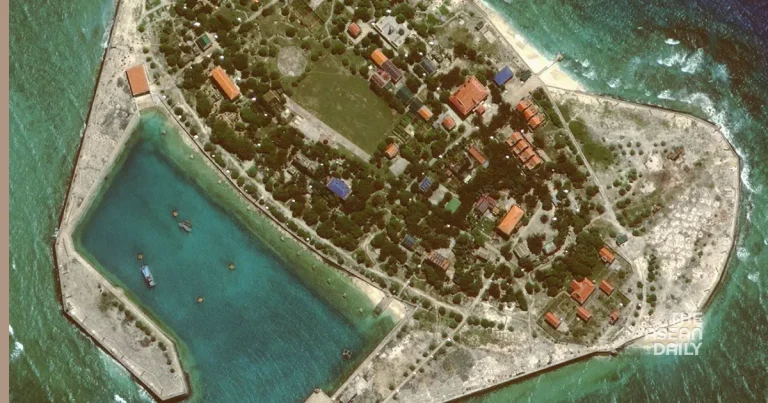15-7-2024 (MANILA) A prominent Philippine expert on international maritime law has called for Manila to invite Hanoi to join forces in a new arbitration case against China. The proposal, aimed at challenging Beijing’s unilateral fishing restrictions in the disputed Scarborough Shoal, marks a potential shift in the regional approach to maritime disputes in the South China Sea.
Former Supreme Court Justice Antonio Carpio put forward this suggestion during a high-profile gathering on Friday, commemorating the eighth anniversary of the Philippines’ landmark arbitral victory against China’s expansive maritime claims. The event, organised by the Stratbase ADR Institute, saw unprecedented attendance from representatives of at least 26 nations, signalling growing international support for Manila’s stance against Beijing’s assertive behaviour in the region.
Carpio’s proposal centres on China’s refusal to allow Filipino fishermen access to the lagoon of Scarborough Shoal, despite a 2016 arbitral ruling that declared the area a traditional fishing ground for Filipino, Chinese, and Vietnamese fishermen. The former justice argued that a new arbitration case could establish clear rules for sustainable fishing in the shoal, potentially curbing China’s aggressive tactics in the area.
“The Philippines can submit to arbitration the drawing up of rules for common fishing in the lagoon,” Carpio stated, outlining potential regulations on annual catch limits, fishing seasons, and permitted equipment. He emphasised that such rules would apply equally to fishermen from all three nations, ensuring sustainable practices in the contested waters.
The proposal comes amidst escalating tensions between Manila and Beijing, with recent incidents involving Chinese coast guard vessels using water cannons against Philippine patrol boats near Scarborough Shoal. These confrontations have heightened concerns over China’s increasingly assertive behaviour in the region and its impact on regional stability.
While the suggestion to include Vietnam in the arbitration process represents a novel approach to addressing the dispute, experts remain sceptical about Hanoi’s willingness to participate. Dr Le Hong Hiep, a senior fellow at the ISEAS – Yusof Ishak Institute in Singapore, told This Week in Asia that Vietnam is unlikely to accept such an offer, citing the country’s priority of maintaining stable relations with China.
“Vietnam considers maintaining peaceful and stable ties with China a key priority, and would not want to upset Beijing over issues not critical to its national interests,” Dr Hiep explained. He added that while Vietnam supports the protection of its fishermen’s rights, the country may prefer to address the issue through diplomatic channels rather than direct confrontation with China.
Despite this, the proposal has sparked renewed discussion on regional cooperation in addressing maritime disputes. The conference in Manila also saw ambassadors from Western nations, including the United States, Australia, Canada, and France, voicing support for the Philippines and condemning China’s actions in the South China Sea.
Interestingly, Japan’s ambassador Endo Kazuya struck a more conciliatory tone, emphasising the need for a balanced approach that acknowledges the strong historical and economic ties that both Japan and the Philippines share with China.




